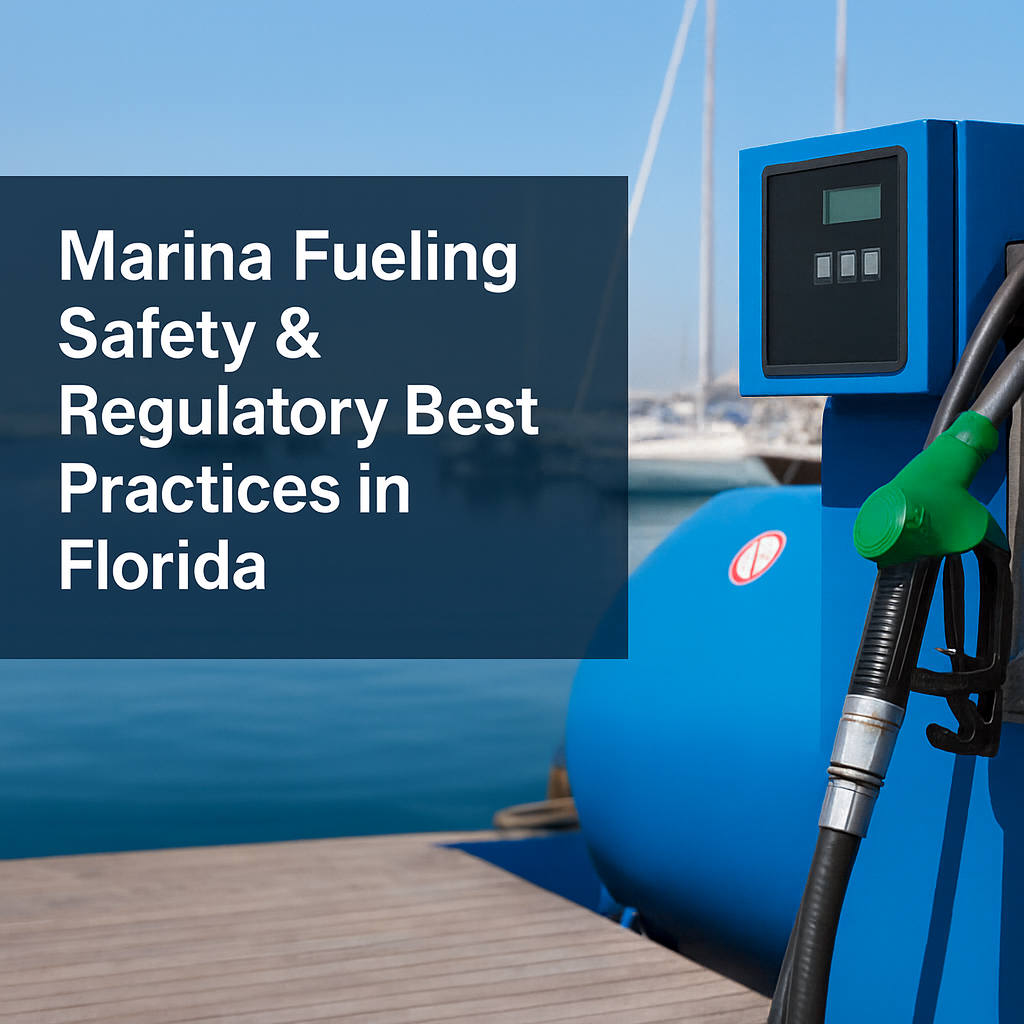0 Marina Fueling Safety & Regulatory Best Practices in Florida
- Petroleum Contractors
- by Robert Wood Jr
- 1-1-2025

Marina Fueling Safety & Regulatory Best Practices in Florida
Marinas are vital coastal hubs—but with fuel comes risk. Following **safety and regulatory best practices for marina fueling** not only protects your customers and environment—it keeps you compliant with Florida DEP standards and builds trust among boaters.
1. Secure Storage & Regulated Fuel Systems
Florida DEP mandates USTs over 110 gallons and ASTs over 550 gallons meet stringent construction and containment requirements. These include approved equipment, leak detection, double-walled piping, spill containment, and anti-siphon valves for over-water and dock structures. :contentReference[oaicite:1]{index=1}
2. Automatic Shut-offs & Spill Prevention
State regulations require fuel facilities at marinas to be equipped with automatic shut-off valves and sufficient spill containment to prevent pollutants from entering waterways when fueling systems are active. Personnel must be trained to manage spills, and systems need to be secured when unattended. :contentReference[oaicite:2]{index=2}
3. Clean Marina Environmental Best Practices
Minimize risk by installing oil/water separators, using absorbent pads for bilges, and ensuring clean disposal of fouled materials. Educate boaters: discourage bilge discharge with detergents, use proper pump-out protocols, and promote preventative maintenance. :contentReference[oaicite:3]{index=3}
4. Boater Education & Staff Training
Fueling is only as safe as the people behind it. Train fuel dock staff with resources like BoatUS’s spill prevention course and provide clear signage to guide safe fueling behavior. :contentReference[oaicite:4]{index=4}
5. Operational Monitoring & Recordkeeping
Routine checks—monthly or during fueling shifts—help catch leaks early and maintain system integrity. Florida DEP regulations require documentation retention (e.g., monthly inspections, maintenance records) and operators must understand incident response protocols. :contentReference[oaicite:5]{index=5}
Why Safe and Compliant Fueling Matters in Florida
Florida’s coastal ecosystems are fragile—and silty fuel spills can harm marine life, coral reefs, and water quality. Adhering to safety rules, fostering staff and boater awareness, and building with best practices safeguards both nature and operations.
